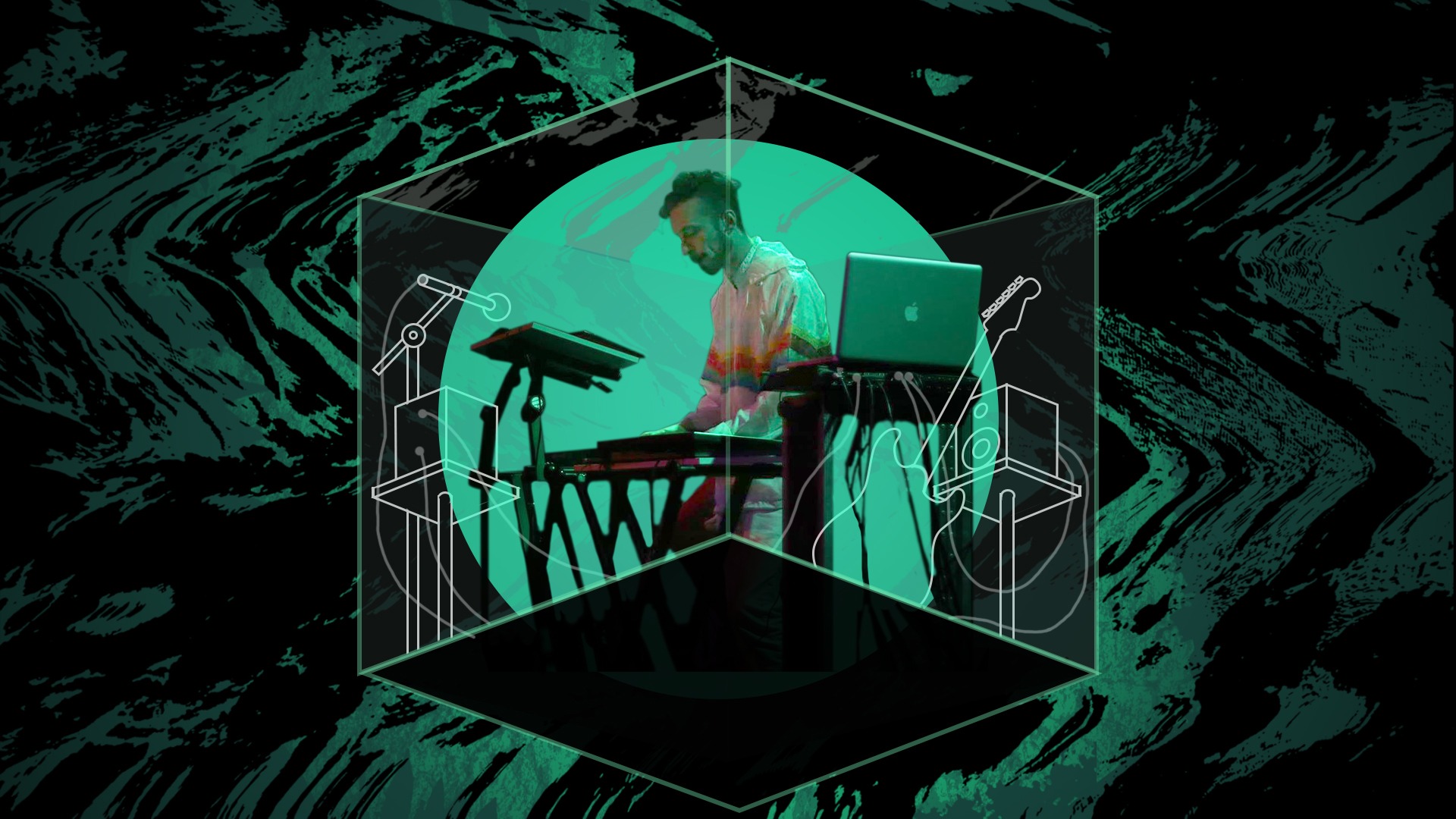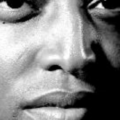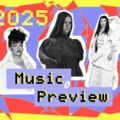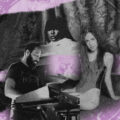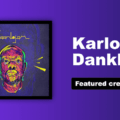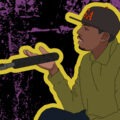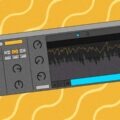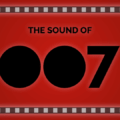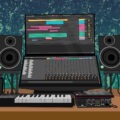Solomon Krause-Imlach is a multi-instrumentalist, composer, producer, and sound designer who understands how sound has the power to move people. He brings audio and ideas to life with his experienced ear and versatile musicality, which he has gained from over a decade of experience working on a wide range of freelance projects.
Five years ago, Solomon moved from Vancouver to Montreal to pursue a career in music production and sound design. He built his home studio from the ground up, and steadily grew his clientele through organic connections formed in the local music scene. He now records artists of all genres, including Polaris Music Prize winner Backxwash, as well as foley and sound design for film, podcasts and advertising.
The multi-talented musician sat down with RAC and shared his thoughts on how to make the most of small spaces and create an ideal sound recording environment, wherever you are.
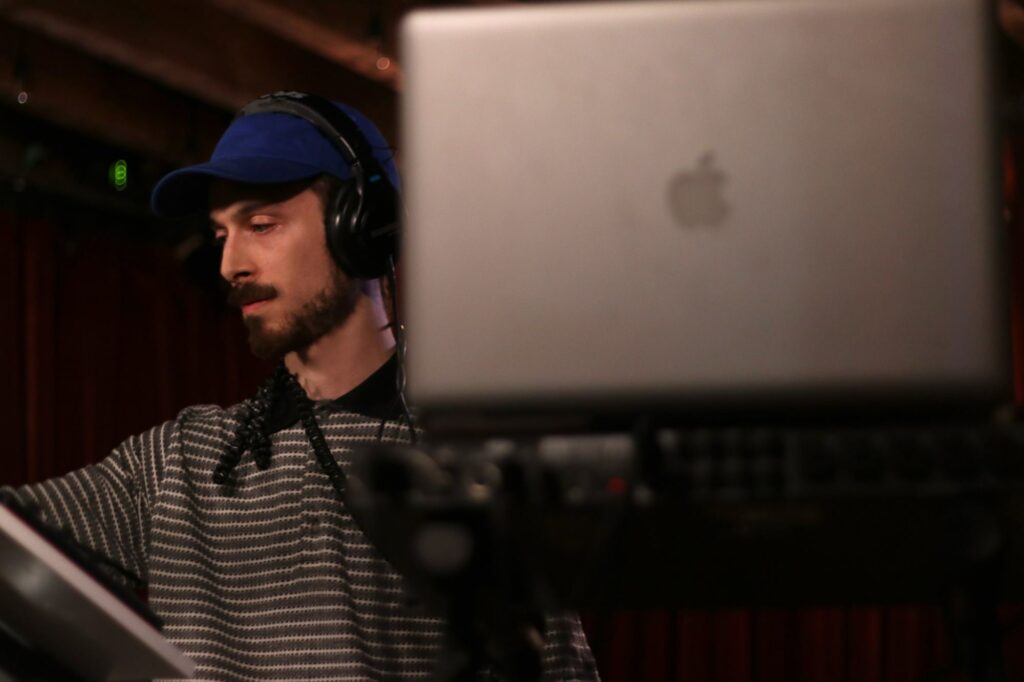
RAC: The music and sound production industry can be intimidating to break into. How did you first jump in?
Solomon: I started playing music at around 11 or 12 years old, and played in bands through high school while picking up various instruments like guitar, drums, and bass. I eventually got into working with a DAW (Ableton) for recording and production, refining my skills by focusing on more electronic-based projects. Through that experience, I developed enough skill and confidence to try working as a freelancer. I met people by being part of the local music scene, both performing and attending shows. It was through those natural connections that I started getting production and recording work.
RAC: You built a home studio from scratch in a small Montreal apartment. How did you make the most of the environment you had and turn it into a professional space?
Solomon: It’s only about a 10’x10’ room, so I knew I had to maximize the space. I wanted to create an area that could work for any project I might need it for, that I felt comfortable working in, and where I could confidently offer professional services. I learned some basic DIY construction skills by watching a lot of YouTube videos and got creative.
For example, the vocal recording booth I have is a very shallow closet space, so I came up with the idea of creating a fold-out booth using doors and hinges. Don’t feel limited by a small space – you don’t need that much room. You can set up a studio in a small area that works for all kinds of projects!
RAC: Regardless of where someone is building their studio, be it a bedroom or a closet, what are three pieces of essential starter equipment to have?
Solomon: 1. Sound absorption material is absolutely essential. Panels or, at the very least, foam or blankets if that’s what you have to work with – anything to absorb the sound.
2. A decent microphone. Not the cheapest you can find, but you don’t need a really expensive mic to record great stuff if your environment is treated decently. I like the Rode NT or, on the more affordable end, the AT2020 works well.
3. A quiet environment is the most important thing. Prioritize treating the studio to the best of your ability – don’t worry about spending a bunch of money. Regardless of how expensive your microphone is, if there’s a bunch of noise, you won’t get a good recording. You need to find the quietest space available. That might mean choosing to record in a closet vs. in your living room next to a window. It’s about looking at every space as a potential recording space and knowing how to pick the best one for the job.
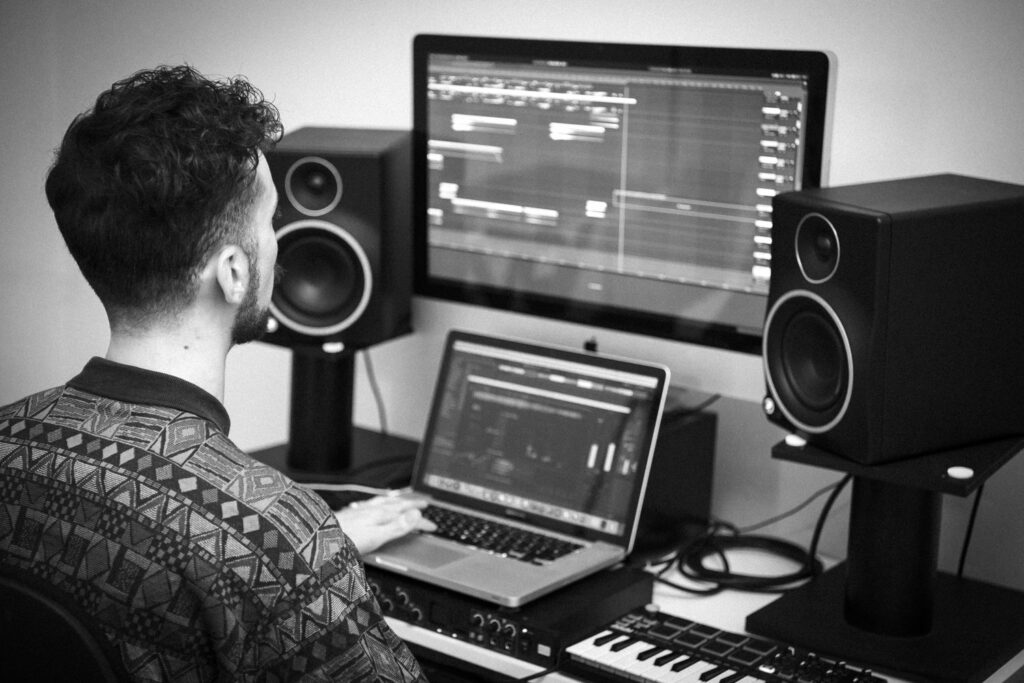
RAC: What were some unexpected areas of work where you found your skills could be applied?
Solomon: There have been all kinds of different opportunities! I was hired to do a project for a video ad campaign that needed original music and sound design. Along with composing the music, I ended up recording my own foley, and was doing things like dropping a bunch of binders on the floor to get the right sounds. That was pretty fun. I already had the basic equipment from recording vocals for musical projects, so I was able to use that experience to record other types of material.
If you feel like you’ve built up enough adjacent contextual skills, don’t be afraid of stretching those and applying them to other things that are out of your usual wheelhouse. I started doing sound design because I had built up a lot of applicable skills in the framework of music production, like using different objects for percussion. I was able to branch into sound effects, sound design for animation, ads, short films, podcasts, as well as narration recording.
RAC: How have you learned to train your ear to work with all different styles of music and recording projects?
Solomon: By exposing myself to different sounds, listening to everything, and being attuned to the music in different media. Listen to music when you watch a show or a movie, pay attention to background music in a YouTube video, listen to the music in podcasts… Also, play with different sounds in the studio for producing – don’t just open up the same batch every time. Try out new sounds and figure out ways to integrate them.
RAC: What’s a lesson in the studio you wish you’d learned sooner?
Solomon: Get some sound panels that have sound absorption foam or an equivalent material inside of them to reduce reflections. Hard, flat surfaces are your enemy!
—Final notes—
Solomon also emphasizes how freelancers can find career-changing job opportunities, even without connections to major studios. Through researching online and signing up for freelancing platforms like Upwork, he was hired as a sound designer and composer for Microsoft, and worked as an audio engineer for a Trojan ad. Having a home studio, no matter how small it may be, is a huge asset – when you have all the equipment you need at your fingertips, it becomes that much easier to jump on exciting opportunities whenever they pop up, especially when they have short turnarounds.
As for how he landed contracts working with major artists like Backxwash, Solomon believes that being part of your city’s music scene is the most valuable, and organic, networking opportunity. “I think actually being there, participating in shows and not just selling your services, forms real relationships and lets you figure out who you vibe with,” he concludes. Artists usually want to work with people they already know and trust, so when they have a project and you have the skills for the job, you’ll be the first they call!
Written by Maryse Bernard
Illustration by Yihong Guo
Banner photo credit: Bad/Good
